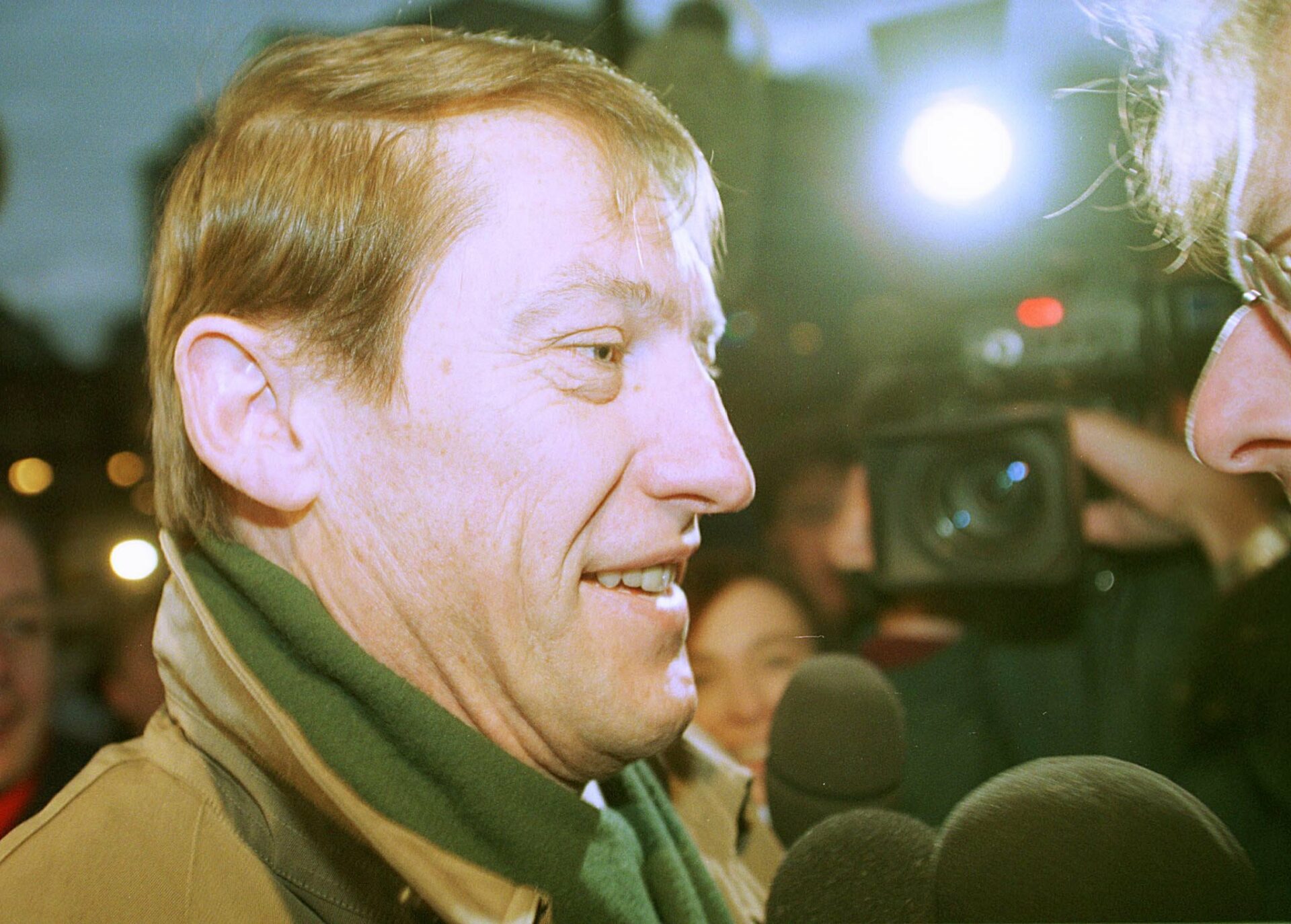From dodgy defence contracts to toxic food contamination, the shadow of corruption has fallen on Belgian politics and society time and again.
Historic scandals have left their mark on Belgian politics, and in their aftermath have usually sparked sweeping reforms or crushing electoral defeats.
In the midst of the EU's Qatargate scandal and looking ahead to the upcoming elections, The Brussels Times revisits Belgium's own biggest scandals from recent decades.
Affaire Agusta
In the 1990s, allegations of corruption and government wrongdoing shook the Belgian political establishment to the core, revealing widespread misconduct among Belgium and NATO's top military brass.
Major multinational defence companies Agusta and Dassault bribed key officials to secure contracts for Agusta A109 helicopters and the modernisation of Belgium's F-16 fighter jets. In total, the scandal led to criminal charges against ten senior socialist politicians from both Flanders and Wallonia, as well as millions of francs in fines.
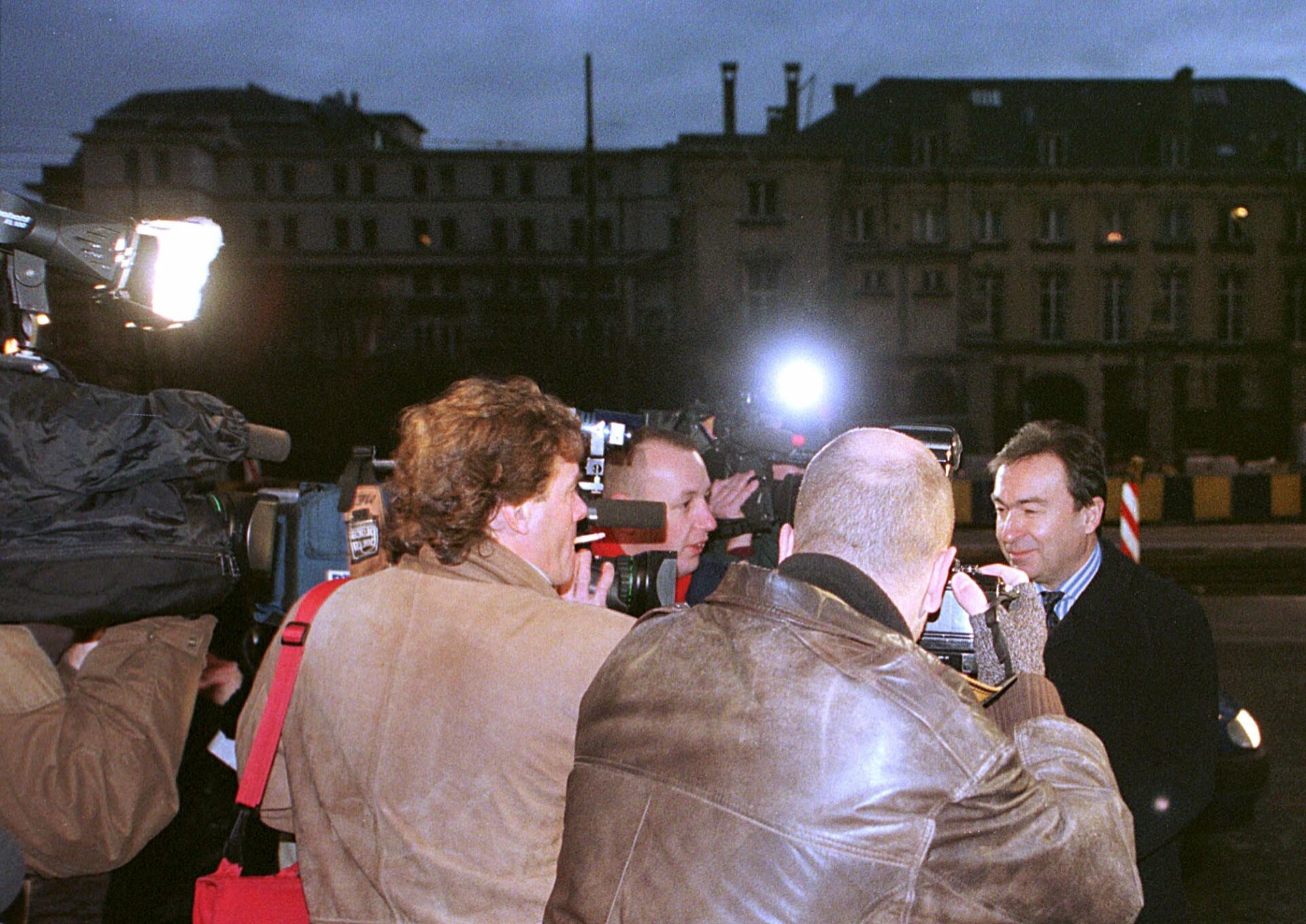
Former Defence Minister Guy Coeme, surrounded by state police officers and journalists at the Cassation Court prior to the Dassault-Agusta case verdict session. Credit: EPA / Belga / Olivier Matthys
The corruption scandal was first thrust into the limelight following the assassination of senior Walloon socialist politician André Cools. The respected politician had held numerous posts in government – including Budget Minister, Deputy Prime Minister and Walloon Parliament President.
Early in the morning on 18 July 1991, the French-speaking politician and his partner were ambushed by two gunmen outside of his apartment building in Liège. The attackers killed Cools in the street, but his partner survived. Later investigations linked the killing to two Tunisian nationals tied to the Sicilian Mafia. Cools was only the second Belgian politician to be assassinated in history.
The attack was blamed on the staff of former Minister Alain Van der Biest. Employed as a private secretary and a driver, they received 20 years in prison for their roles in the attack. Both had ties to the Mafia.
It is now believed that Cools was likely aware or implicated in the scheme to receive bribes in exchange for increasingly favourable contracts with the defence companies. In 1993, a judge opened an official investigation into corruption involving Agusta and ties to the murder of the official.
Raids across Belgium targeted the offices of defence company Agusta and the home of its lobbyist Georges Cywie.
Related News
- Public scandals dent trust in Belgian politics, reveals study
- 'Tip of the iceberg': Qatargate mere symptom of deeper corruption, claims senior EU official
- 'Belgian democracy is in terrible danger', warns former Qatargate judge
Evidence quickly emerged of widespread corruption among senior leaders of the Socialist Party and both the Walloon and Flemish Governments, the Belgian Senate removed the immunity of the Minister-President of Wallonia Guy Spitaels. Heads rolled as several leading politicians were found to be criminally liable.
Deputy Prime Minister Guy Coëme was forced to resign and was later sentenced for passive corruption and forgery. Willy Claes (PS), member and then Secretary General of NATO, also resigned in 1995 and was found guilty of passive corruption. The director of the Dassault Group, Serge Dassault, was found guilty of active corruption, but received just two years probation.
Infamously, Frank Vandenbroucke, current Health Minister, was found to have ordered employees to burn several million Belgian francs in undeclared party finances which were received as bribes. The Public Prosecutor's Office exonerated Vandenbroucke from criminal wrongdoing, but he was forced to resign as Minister of Foreign Affairs. The scandal hung over the politician for many years.
In total, Agusta and Dassault were found to have paid over 160 million Belgian francs (around €4 million) in bribes to the Socialist Party in both Wallonia and Flanders. The sister parties were forced to return all of the funds to the Belgian State.
The incident had wide-reaching implications in Belgian politics. In part, the incident led to a resurgence of the Belgian right, which had traditionally been weak in many parts of the country. 1991 saw the dramatic rise in electorate for the Vlaams Blok and significant losses for the socialists. The decline in the socialist vote would continue until a significant resurgence in 2003.
In the aftermath of the scandal, the Federal Government implemented reforms to enhance the transparency of its public procurement processes, which marked a notable step in combatting corruption.
Affaire Dioxin
In the spring of 1999, health authorities detected that many feedstocks used in animal food products for poultry contained Polychlorinated biphenyls (PCBs), a toxic chemical responsible for causing illness in humans and seriously damaging the environment.
These chemicals had been banned in Europe since the 1980s, yet were still present in Belgian food products. PCBs affect thyroid function in both men and women and increase the likelihood of contracting cardiovascular and liver diseases, as well as diabetes.
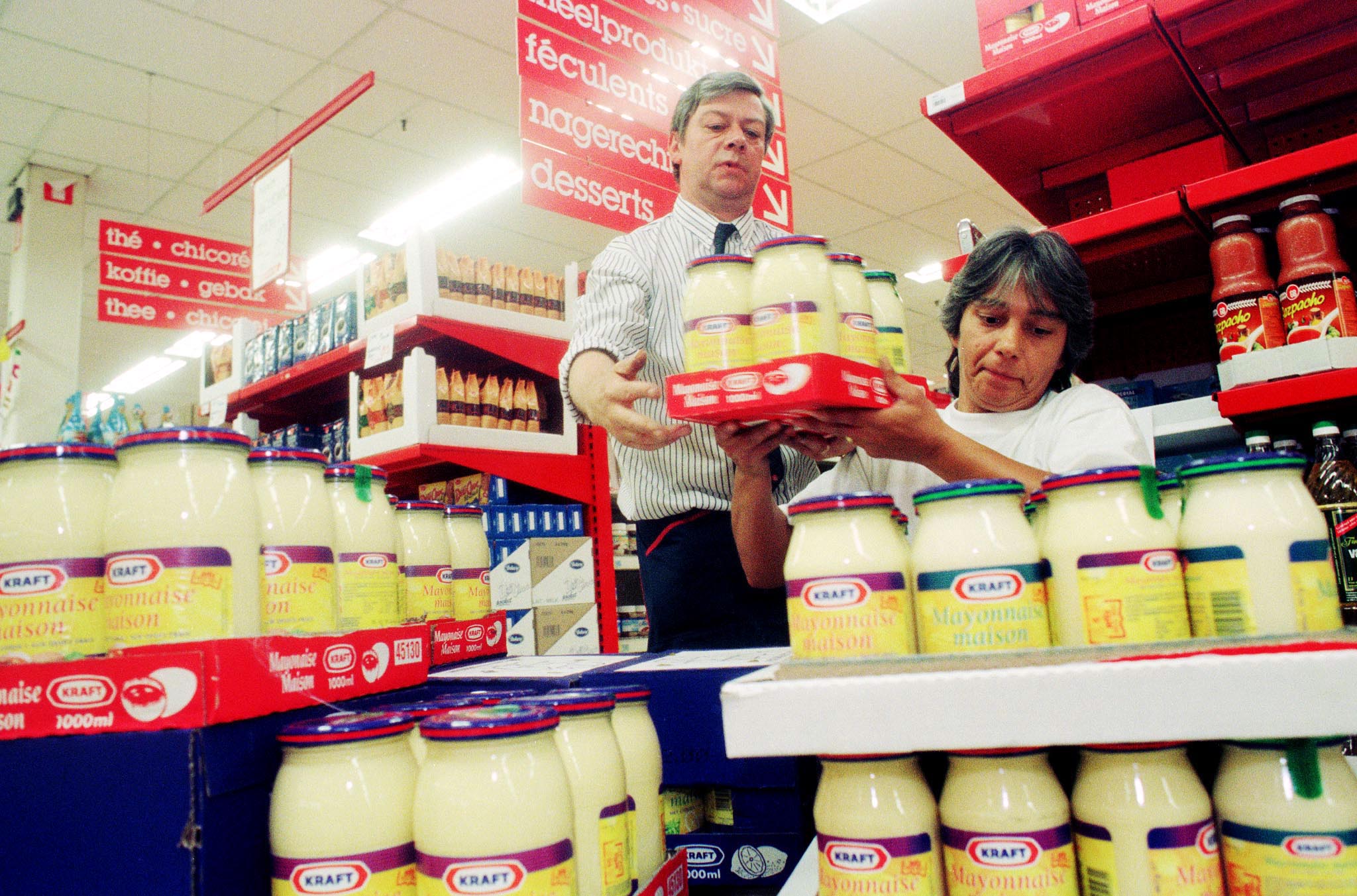
Supermarket workers throw out products found to contain more than 2% egg due to concerns over dioxin contamination. Credit: Belga / Geert Vanden Wijngaert
Whilst health inspectors flagged the issue in January 1999, the Federal Government, under the leadership of Christian democrat Jean-Luc Dehaene, of the centre-right Flemish Christian People's Party (CVP), did not act until several months later following leaks to the press. The opposition accused the Government of an attempted cover-up when evidence emerged that several State Secretaries had been informed of widespread contamination of foods.
Belgian food safety laboratories detected the presence of dioxin toxins in numerous foods after reports of increased death rate among new-born chicks. High concentrations of the toxic chemicals were found in eggs and tissue of birds, as well as their feed. These chemicals potentially contaminated consumers.
A public report published in 2001 found high levels of dioxin in the blood plasma of Belgian citizens, compared to other Europeans. Some experts have hypothesised that this was likely linked to the contamination detected before the millennium. Later analysis suggested that the true impact on public health was likely overstated, as the toxins were largely diluted further down the food chain.
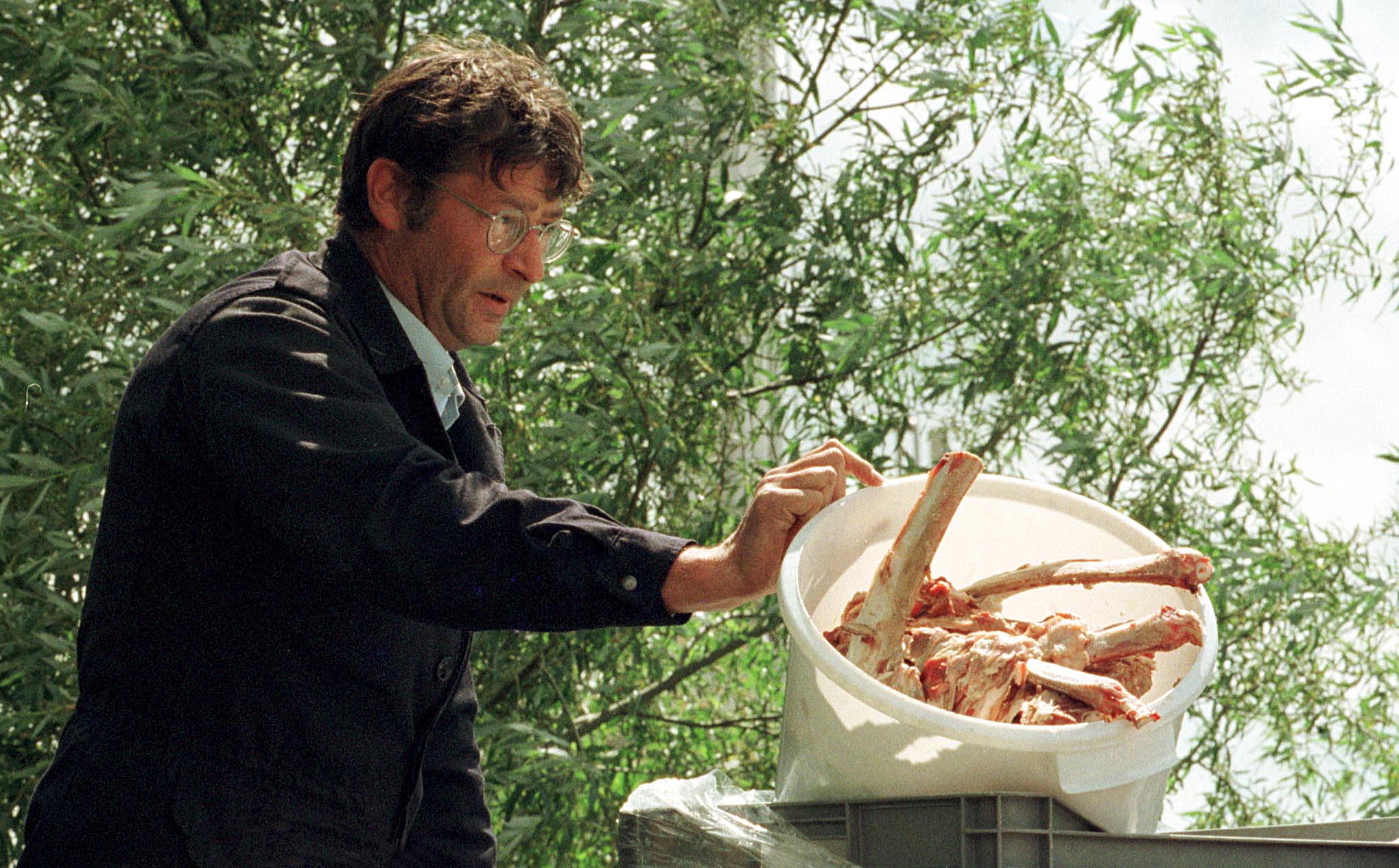
Civil protection agent seen collecting dioxin-contaminated food at Bruges' container park. Credit: Belga: Olivier Matthys
The scandal caused significant panic across Belgium. Hundreds of food products were removed from sale as a result of the contamination. Over 200 farms were closed in response to the contamination. Some Belgian pigs were found to have over 50 times above the recommended level of the toxic chemical.
The incident amounted to "the most serious economic crisis Belgium has known since the war," according to Jose Happart, former Walloon Minister of Agriculture. He noted that Belgium had been "totally discredited at the international level."
As the scandal grew, Federal Minister of Agriculture Karel Pinxten and Minister of Health Marcel Colla resigned and a commission was established to investigate how the contamination occurred, and why it had not been dealt with sooner. The source of the contamination was later tracked to an oil and fat recycling plant in East Flanders. Fats were turned into animal feed which contained coolant fluid, a source of PCBs.
The total cost of the crisis was estimated at around 25 billion Belgian francs (around €625 million). This was a fatal blow for Belgium's governing CVP, which suffered a crushing loss at the polls at the end of the year, unseating Dehaene as Prime Minister for the first time since 1992. The scandal also propelled the career of Guy Verhofstadt, one of the first politicians to bring the issue to public attention, who later became the leader of Belgium.
'Kazakhgate'
Cash for influence, as seen by the recent Qatargate bribing scandals, is not new in Belgium. In 2018, former Belgian Minister Amand de Decker was accused of influence-peddling as part of the international 'Kazakhgate' probe, which investigated corruption surrounding a shadowy trade agreement between France and Kazakhstan.
'Kazakhgate' is not one singular scandal, but rather a series of suspicious interactions with Kazakh oligarchs and influence-trading across Europe. In Belgium, these accusations swirl around a number of leading EU politicians, royals and local officials.
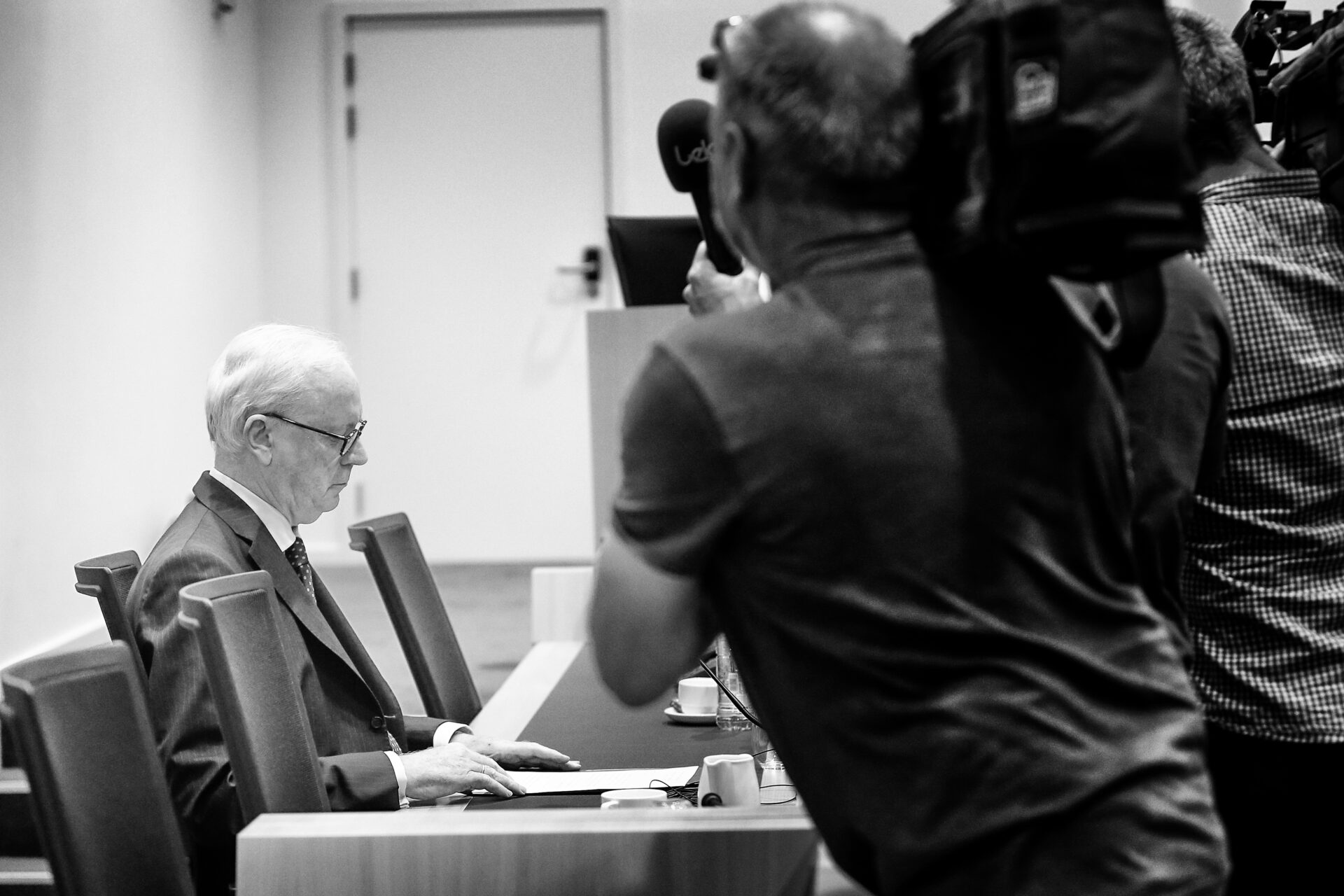
Armand De Decker pictured during a session of the parliamentary inquiry commission on the plea agreement, at the federal parliament, in Brussels, Friday 07 July 2017. This commission enquire the circumstances which led to the approbation and the application of the law of 14 April 2011 on the plea agreement. Credit: Belga/ Bruno Fahy
In Belgium, much of the Kazakh controversy swirls around the so-called 'Kazakh trio', composed of three oligarchs brought to Belgium at the invitation of a suspected front company for the financial operations of the former Soviet intelligence services, the KGB. Most controversial of these three Kazakhs is Patokh Chodiev, who received Belgian nationality under dubious conditions in 1997.
The Kazakh oligarch was accused of receiving political assistance from French-speaking politicians to attain his citizenship. In 2017, investigators rejected allegations that the former Waterloo Mayor and the head of the city's police force had helped Chodiev obtain a Belgian passport.
Chodiev's exact role in Belgium is still uncertain. At one point, Belgian security services believed him to be the head of the Russian Mafia in Belgium. A leaked letter from 2000 suggests that he also worked as an active State Security informant from at least 1998, potentially providing information of the Russian criminal underworld and oligarchs.
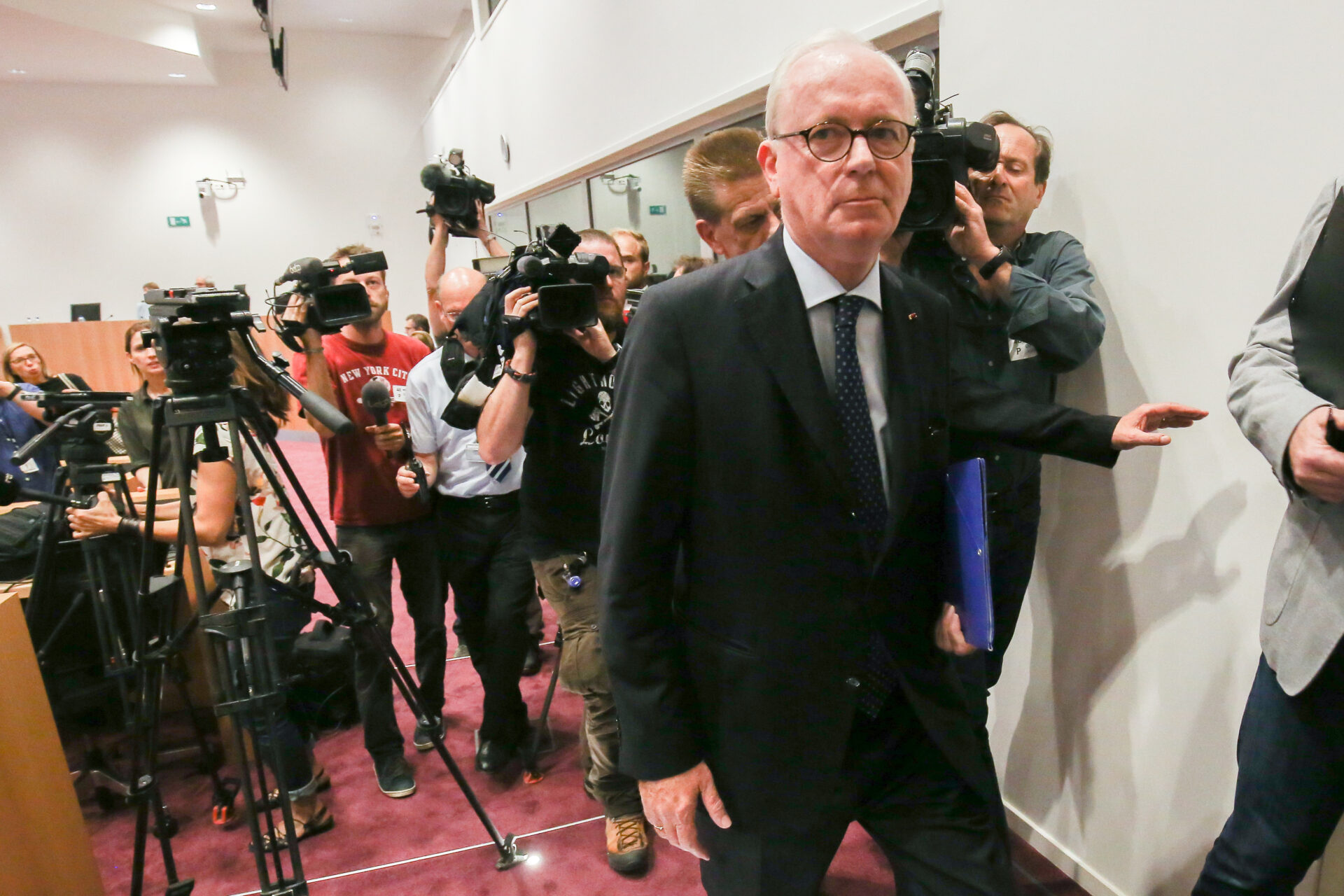
Credit: Belga / Bruno Fahy
Chodiev and his accomplices most likely acted as agents of influence to facilitate Engie-owned Tractebel's purchase of four power plants in Kazakhstan, as well as energy concessions. In 2007, Belgium accused the 'Kazakh trio' of having received kickbacks of €50 million to facilitate the deal.
Charges were presented against the trio, as well as the wife of the Kazakh Prime Minister and other government officials, for forgery, money laundering and criminal association.
The case was dragged out in the courts for many years, finally being passed to the criminal court. Conveniently, just 15 days later, a new law was hastily adapted allowing for out-of-court settlements in the criminal court. In exchange for €23 million (some claim that the true figure was as low as €3.5 million), the case against the accused was dropped.
Then President of the Belgian Senate, Armand De Decker, is suspected of having taken part in a network to hastily pass through the new law to save the Kazakh businessmen from prosecution. Le Soir alleges that Decker intervened on behalf of the three accused in exchange for a payment of over €700,000. In 2016, the Kazakh trio also made financial transactions with Belgian royal Princess Léa.
The results of the State investigation, approved by the majority of the House of Representatives, concluded that despite provable lobbying by Decker, there had been no direct influence of the adoption or drafting of the law.
Publifin
In 2017, it was revealed that regional officials from Les Engagés, the Socialist Party (PS), and Mouvement Réformateur (MR) had received payments of up to €500 per minute for bogus meetings on behalf of the intermunicipal company Publifin (now known as Enodia), which is the parent company of private subsidiary Nethys, responsible for electricity distribution in Liège.
With or without their attendance, some regional officials received remuneration for being part of consultative bodies amounting to up to €2,871 per month. One official received around €20,000 in three years without ever attending a single meeting. While the Walloon Parliament was quick to act, capping remuneration at a flat €150 for attendance, accusations of corruption quickly appeared.
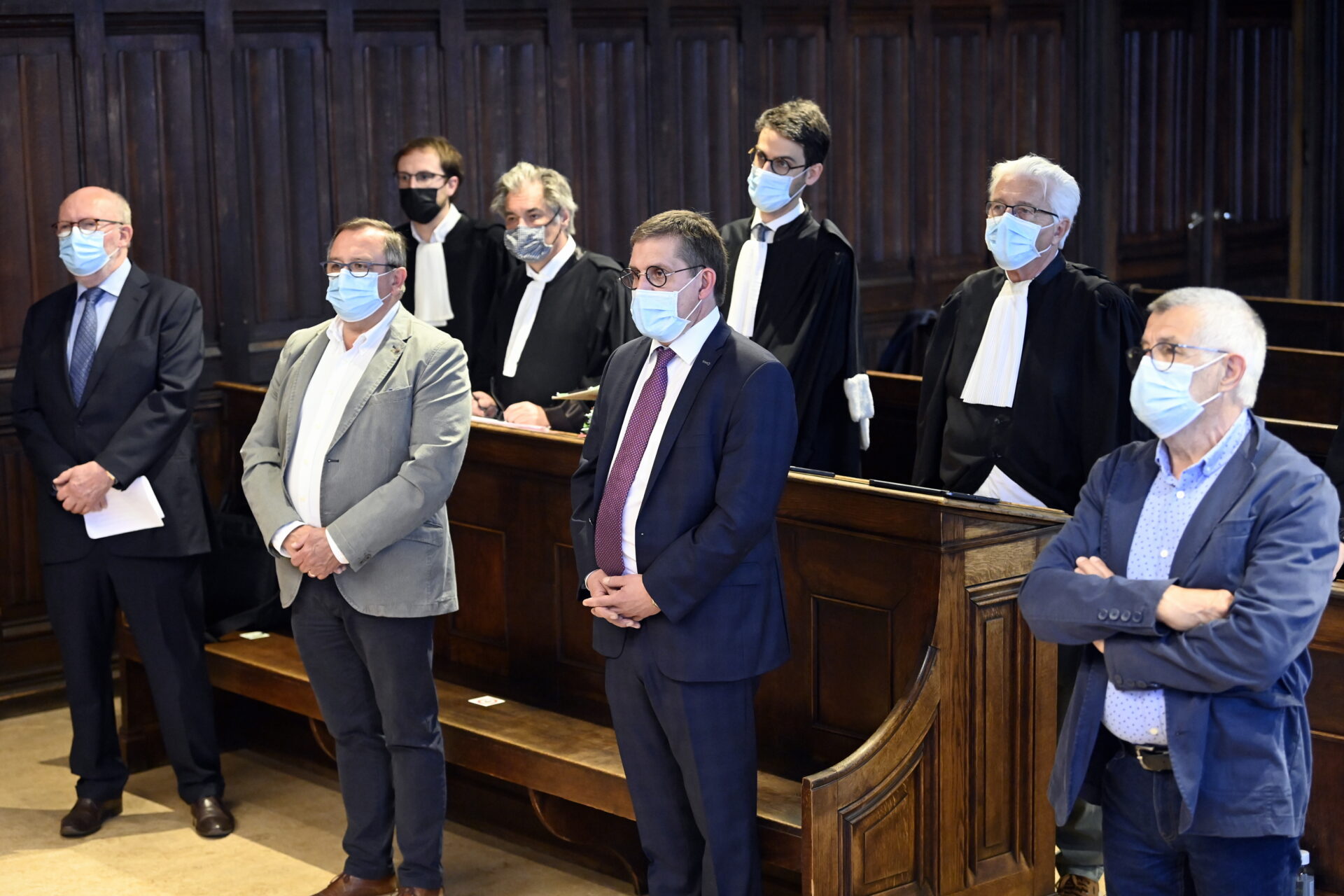
Georges Pire, Pol Guillaume, Andre Denis and Jean-Marie Gillon pictured during the start of the trial of seven former members of the Publifin's board at the Liege's Appeal Court, 3 June 2021. The seven are charged with taking of interest and embezzlement by a person in the public service. Credit: Belga / Eric Lalmand
The board of Publifin was composed of several politicians from numerous parties. The press speculated that the payment could have been made to some regional officials as a reward for party loyalty, in addition to their remuneration as elected officials.
The scandal triggered a series of high-profile resignations in Wallonia. Serge Manzaot, Mayor of the Walloon municipality of Engis, stepped down from the leadership of the Socialist Federation in Huy-Waremme. A day later, MR politician Virgine Defrang-Firket announced that she would leave the board of directors of Publifin over the payments. Willy Demeyer also stepped down as a Federal Minister.
While some politicians returned payments from Publifin, others remained quiet and hung onto their payments. A final report published by the Walloon parliamentary committee concluded that there had likely been "one or more criminal offences" committed by the management of Publifin, including extortion and abuse of corporate assets.
In 2021, three members of Nethys' remuneration committee would be find guilty of forgery and use of forgery in relation to the scandal.

